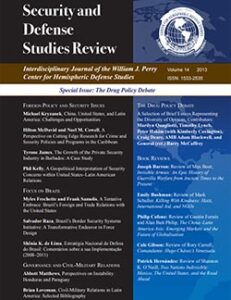Brazil's economic performance, political stability, and search for greatness ensure that Brazil will play a strong role on many global issues and will strengthen regional economic cooperation. US-Brazil relations have evolved from an alliance during and after World War II into a wary but crucial engagement today. The April 2012 meeting of Presidents Dilma Rousseff and Barack Obama deepened cooperation on common interests. Brazil's foreign policy is set by economic factors more often than ideology, and Brazil wants to advance its core interests. The US seeks to encourage Brazil's rise. Nevertheless, differences between the US and Brazil on trade and other issues will not be overcome easily. This paper examines how the shifting balance of power in the world has expanded Brazil's spheres of action while outdated concepts like formal trading blocs prevent Brazil from achieving the narrower goals it set for itself.

